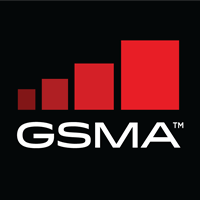GSMA calls for regulatory framework to boost investment, innovation

The GSMA said that the telecommunications sector requires a regulatory framework to encourage investment, innovation and consolidate on the progress made so far in the sector.
GSMA made the call ahead of EU Council meeting of Telecoms Ministers to discuss amendments to the draft European Electronic Communications Code.
The GSMA is a body which unites nearly 800 operators with almost 300 companies in the broader mobile ecosystem, including handset and device makers, software companies, equipment providers and internet companies.
“The GSMA acknowledges the progress made thus far, but we must aim higher with our ambitions. We urge Telecoms Ministers to take into account the following considerations, which will be essential in advancing Europe’s goals for 5G and a Gigabit Society,” said Afke Schaart, Vice President Europe, GSMA.
It therefore recommended the following: Spectrum policy reform is essential to achieving the European ambition on 5G. To this end, the GSMA strongly encourages the Council to focus on creating a more predictable, certain and consistent environment for investment in Europe through the Code. One crucial element to fostering more investment is the extension of the license duration over spectrum assets. A duration of at least 25 years, with a strong presumption of renewal, is needed to provide incentives for the industry to invest at the expanded levels necessary for 5G deployment throughout Europe.
The Council should also encourage greater coordination and cooperation on spectrum policy among the EU Member States. Sharing the tremendous expertise Member States have over spectrum issues amongst themselves through, for example, a peer-review process will be a major step towards creating a more harmonized and truly connected continent.
The Code should avoid overly burdensome regulation of electronic communications service providers. The Council’s changes to the proposed level of harmonization of end-user protection provisions on interpersonal communication services increases the overall regulatory burden on the telecoms sector. Such rules and obligations can increase costs and constrain providers’ ability to invest in new services or network enhancements, and potentially decrease consumer benefits as a result of inconsistent rules across Member States.
The GSMA acknowledges steps taken by the Council to discard sector-specific service regulations that are not relevant in today’s dynamic communications service market.
However, to fully achieve a fit for purpose and future-proof regulatory framework, careful consideration should be given to Internet of Things (IoT) services provisioning.
Many IoT services will be available to consumers in the future, from connected fridges to pet trackers, burglar alarms to connected cars, which may include some element of connectivity without being either an internet access service or interpersonal communications service.
The GSMA recommends restricting sector-specific end-user protections to internet access services and interpersonal communications services, and to apply conveyance of signals sector-specific regulation only to requirements relating to security and privacy. This will enable continued innovation and will truly empower end users by establishing a sound platform for the ongoing digital revolution.








